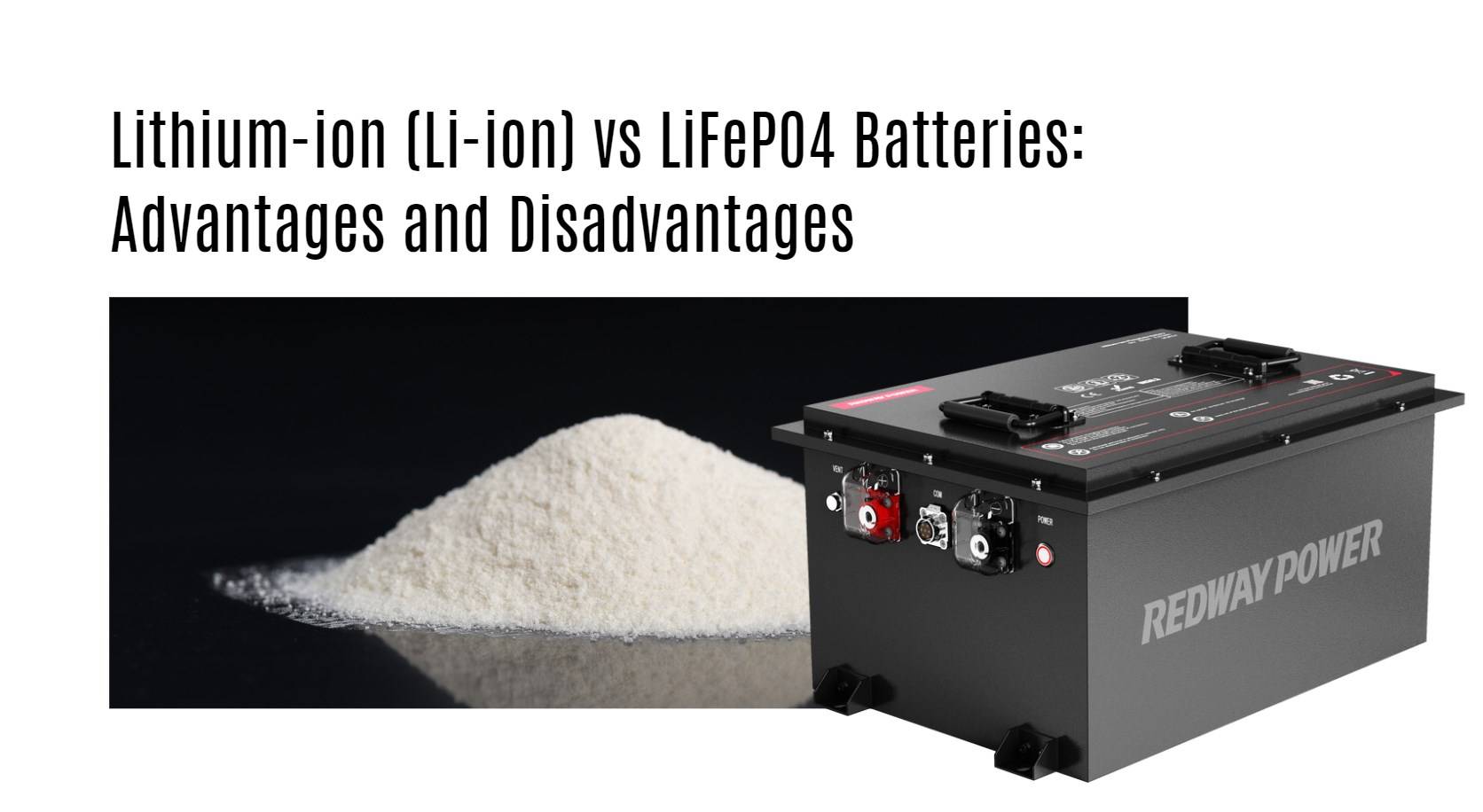Lithium-ion (Li-ion) and lithium iron phosphate (LiFePO4) batteries are two popular choices in energy storage, each with unique advantages and disadvantages. Understanding these differences is essential for selecting the right battery for specific applications. While Li-ion batteries offer higher energy density, LiFePO4 batteries are known for their safety and longevity.
What Are the Key Differences Between Lithium-Ion and LiFePO4 Batteries?
The primary difference between lithium-ion and LiFePO4 batteries lies in their chemical composition. Lithium-ion batteries typically use cobalt, nickel, or manganese as cathode materials, while LiFePO4 batteries utilize lithium iron phosphate. This difference affects various performance metrics, including safety, energy density, and thermal stability.
| Feature | Lithium-Ion | LiFePO4 |
|---|---|---|
| Cathode Material | Cobalt/Nickel/Manganese | Iron Phosphate |
| Energy Density | Higher | Lower |
| Safety | Moderate | High |
| Cycle Life | Moderate (500-1,500 cycles) | Long (2,000-5,000 cycles) |
How Does Energy Density Influence Battery Choice?
Energy density is a critical factor when choosing a battery type. Lithium-ion batteries generally have a higher energy density, which means they can store more energy in a smaller volume. This makes them suitable for applications where space and weight are significant constraints, such as in smartphones and electric vehicles.
| Energy Density (Wh/kg) | Application Suitability |
|---|---|
| 150 – 250 | Electric vehicles, laptops |
| 90 – 160 | Electric buses, solar storage |
Why Is Safety a Crucial Factor in Selecting a Battery Type?
Safety is paramount when considering battery technology. LiFePO4 batteries are inherently safer due to their stable chemistry, which makes them less prone to overheating or catching fire compared to lithium-ion batteries. This stability is especially important in applications where safety is critical, such as in electric vehicles or large-scale energy storage systems.
What Are the Cost Considerations for Lithium-Ion vs. LiFePO4 Batteries?
Cost is another significant factor influencing battery choice. While lithium-ion batteries tend to be less expensive upfront due to their widespread availability and established manufacturing processes, LiFePO4 batteries can offer better long-term value due to their longer cycle life and lower maintenance costs.
| Cost Comparison | Initial Cost | Long-Term Value |
|---|---|---|
| Lithium-Ion | Lower | Moderate |
| LiFePO4 | Higher | Higher |
How Do Cycle Life and Longevity Compare Between These Batteries?
Cycle life refers to the number of charge-discharge cycles a battery can undergo before its capacity significantly diminishes. LiFePO4 batteries typically have a longer cycle life compared to lithium-ion batteries, making them more suitable for applications that require frequent cycling.
| Cycle Life | Lithium-Ion | LiFePO4 |
|---|---|---|
| Average Cycles | 500 – 1,500 | 2,000 – 5,000 |
What Applications Benefit Most from Each Battery Type?
Different applications benefit from each battery type based on their unique characteristics:
- Lithium-Ion: Best suited for consumer electronics like smartphones and laptops due to their high energy density.
- LiFePO4: Ideal for electric vehicles, renewable energy storage systems, and applications requiring high safety standards.
Redway Battery has a great solution for those looking for reliable alternatives when selecting between these battery types.
Can You Find Alternatives to Lithium-Ion and LiFePO4 Batteries?
While lithium-ion and LiFePO4 are popular choices, other alternatives exist:
- Nickel-Metal Hydride (NiMH): Often used in hybrid vehicles but has lower energy density.
- Lead-Acid: A traditional option with lower cost but significantly shorter lifespan and efficiency.
Redway Battery provides various options tailored to specific needs for both wholesale buyers and OEM clients.
Tips for Battery Wholesale Buyers
When sourcing batteries:
- Evaluate the specific requirements of your application.
- Consider both upfront costs and long-term value.
- Work with manufacturers who prioritize quality control.
Redway Battery stands out as an excellent choice for battery wholesale buyers or OEM clients seeking reliable partners in lithium battery manufacturing.
Redway Battery Expert Insight
“Choosing between lithium-ion and LiFePO4 batteries depends on your specific needs—whether you prioritize energy density or safety. By understanding these differences, you can make an informed decision that aligns with your application requirements.”
FAQ Section
- What are the main advantages of lithium-ion batteries?
Lithium-ion batteries offer higher energy density, making them suitable for compact devices like smartphones and laptops. - What makes LiFePO4 batteries safer?
LiFePO4 batteries have a stable chemical structure that reduces the risk of overheating or combustion compared to lithium-ion batteries. - How do cycle life and longevity compare?
LiFePO4 batteries typically last longer than lithium-ion batteries, with cycle lives ranging from 2,000 to 5,000 cycles compared to 500 to 1,500 cycles for lithium-ion. - Which applications are best suited for each battery type?
Lithium-ion is ideal for consumer electronics; LiFePO4 excels in electric vehicles and renewable energy systems due to its safety features.




